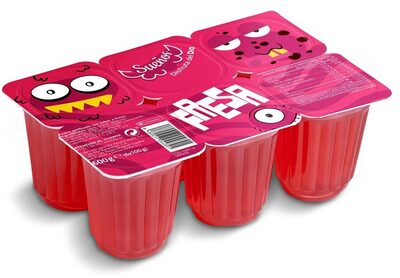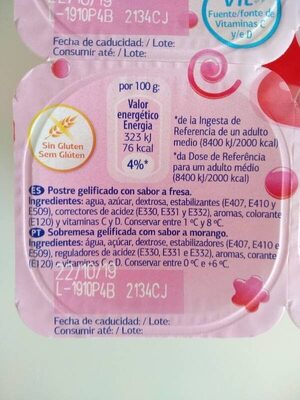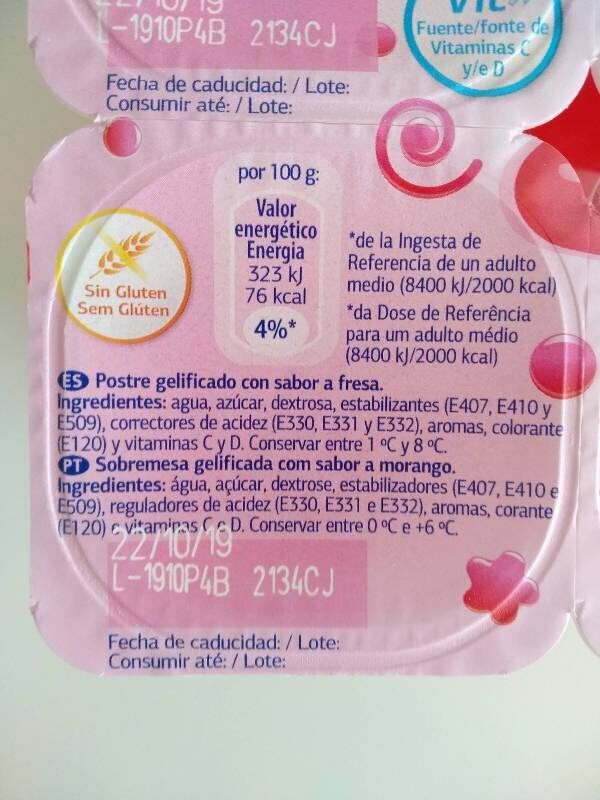Fresa - Morango - Dia - 600 g
This product page is not complete. You can help to complete it by editing it and adding more data from the photos we have, or by taking more photos using the app for Android or iPhone/iPad. Thank you!
×
Barra-kodea: 8480017044891 (EAN / EAN-13)
Kopurua: 600 g
Ontziratzea: en:Plastic
Markak: Dia
Kategoriak: en:Desserts, en:Jelly desserts
Etiketak, ziurtagiriak, sariak: en:No gluten
Saltzen diren herrialdeak: Espainia
Matching with your preferences
Ingurumena
Ontziratzea
Transportation
Report a problem
Datuen iturria
Product added on by elcoco
Last edit of product page on by thaialagata.
Produktuaren orria -gatik editatua aleene, date-limite-app, elcoco.8b0f4ec68eb78c8ab3bdc70d154a9626, joseangel-madrid, kiliweb, moon-rabbit, muldev, packbot, roboto-app, teolemon, yuka.Um8wWUQ2Y2IvZUF1dE1VeXB4K0VvTWwrNTdPQ1hXQ1NkL0FoSVE9PQ, yuka.WFo4Ukh2b29tL29ZdHZjQjNpTE8yZDV4NEppQ2RGKzdOYkFTSWc9PQ.










